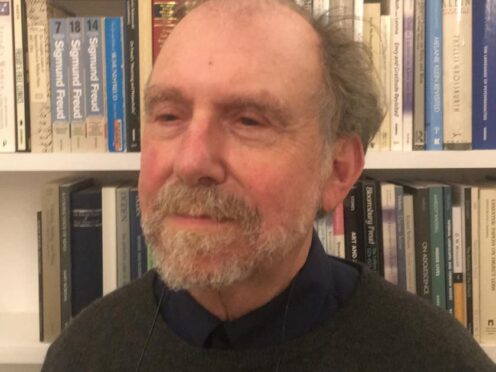
A Tavistock trust whistleblower said he was “shocked” that adult gender clinics had refused to take part in research.
Dr David Bell, who wrote a report six years ago after colleagues raised concerns about the children’s gender service which closed last month, said he did not expect the “complete lack of co-operation of adult services” revealed as part of a major report published on Wednesday.
Dr Hilary Cass had, through her Independent Review of Gender Identity Services for Children and Young People, commissioned research tracking the journeys of young people who were seen by the now-shut Gender Identity Development Service (Gids) at the Tavistock and Portman NHS Foundation Trust.
The research could have encompassed outcomes for approximately 9,000 young people who moved from Gids into NHS adult gender dysphoria clinics.
Dr Cass described it as a “world leading opportunity” to add to the evidence base – something her report makes clear is sorely lacking in the area of gender care.
But six of the seven adult clinics declined to support the study, with reasons for not doing so including ethical considerations and concerns about funder
motivation and political interference, with fears the resulting “high-profile national report” could be misinterpreted or misrepresented.
In a letter to John Stewart, national director for specialised commissioning in NHS England and NHS Improvement, dated last month, Dr Cass said that despite his “welcomed efforts to obtain cooperation, most of the NHS gender clinics have refused to take part in this research”.
Dr Cass said it had “not been at all straightforward trying to get this research off the ground” and had “absorbed a considerable amount of time and attention” from the review and delayed its work.
She said the study “follows usual NHS research practice” and was “only novel because of the sensitivity of the subject matter”.
Dr Cass said it was “hugely disappointing that the NHS gender services have decided not to participate with this research”.
She added: “I am frustrated on behalf of the young people and their families that the opportunity to reduce some of the uncertainties around care options has not been taken.”
Asked about it as her report was published on Wednesday, she told of her surprise that the adult services “weren’t keen to collaborate because I would have expected them to have a professional curiosity about what was happening in terms of long-term outcomes” for young people.
She added: “Certainly if they were confident that their model of care was the right one, they should have been really keen to see that research as much as we were so yes, it is disappointing.”
Dr Bell told the PA news agency: “I was shocked by the finding that the adult service had been asked and refused to co-operate. I didn’t think they would go that far.
“They seem to be wanting to, instead of being transparent, keeping the curtains shut so that we can’t be allowed to see what happens.
“And that is extremely worrying.”
NHS England has written to local NHS leaders informing them that a planned review of adult services will now become a “broader, systemic review of the operation and delivery” of gender dysphoria clinics (GDCs).
The letter “also makes clear that NHS England expects full cooperation from the GDCs in the delivery of the data linkage study”, meaning they will be required to participate in research.
Dr Bell, a retired consultant psychiatrist, welcomed the overall report as an “extremely balanced and calm” one, saying he feels vindicated for first reporting concerns raised to him at Gids.
He said: “It shows that all of us who raised these concerns all these years ago, although it’s taken a while, every single concern that we raised has been borne out by this study.
He said it had taken “a while for people to listen to us”, and praised the tone of Dr Cass’s report.
“She has to absolutely frame it in such a way that most reasonable people will be able to take it in as a balanced and rational document,” he said.
“It’s not set out as an expose, that’s not its job. But behind the scenes there is a terrible expose.”

Enjoy the convenience of having The Sunday Post delivered as a digital ePaper straight to your smartphone, tablet or computer.
Subscribe for only £5.49 a month and enjoy all the benefits of the printed paper as a digital replica.
Subscribe